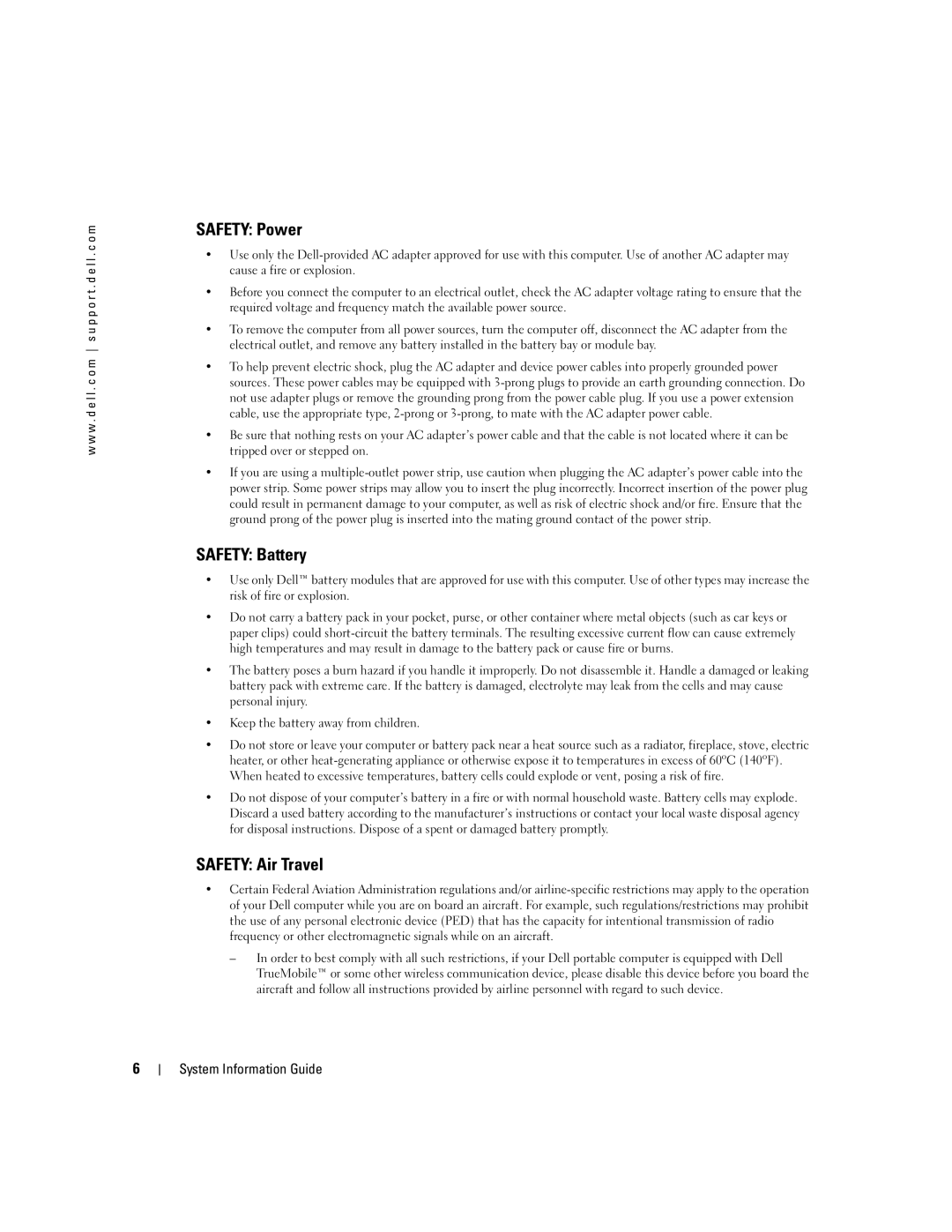w w w . d e l l . c o m s u p p o r t . d e l l . c o m
SAFETY: Power
•Use only the
•Before you connect the computer to an electrical outlet, check the AC adapter voltage rating to ensure that the required voltage and frequency match the available power source.
•To remove the computer from all power sources, turn the computer off, disconnect the AC adapter from the electrical outlet, and remove any battery installed in the battery bay or module bay.
•To help prevent electric shock, plug the AC adapter and device power cables into properly grounded power sources. These power cables may be equipped with
•Be sure that nothing rests on your AC adapter’s power cable and that the cable is not located where it can be tripped over or stepped on.
•If you are using a
SAFETY: Battery
•Use only Dell™ battery modules that are approved for use with this computer. Use of other types may increase the risk of fire or explosion.
•Do not carry a battery pack in your pocket, purse, or other container where metal objects (such as car keys or paper clips) could
•The battery poses a burn hazard if you handle it improperly. Do not disassemble it. Handle a damaged or leaking battery pack with extreme care. If the battery is damaged, electrolyte may leak from the cells and may cause personal injury.
•Keep the battery away from children.
•Do not store or leave your computer or battery pack near a heat source such as a radiator, fireplace, stove, electric heater, or other
•Do not dispose of your computer’s battery in a fire or with normal household waste. Battery cells may explode. Discard a used battery according to the manufacturer’s instructions or contact your local waste disposal agency for disposal instructions. Dispose of a spent or damaged battery promptly.
SAFETY: Air Travel
•Certain Federal Aviation Administration regulations and/or
–In order to best comply with all such restrictions, if your Dell portable computer is equipped with Dell TrueMobile™ or some other wireless communication device, please disable this device before you board the aircraft and follow all instructions provided by airline personnel with regard to such device.
6
